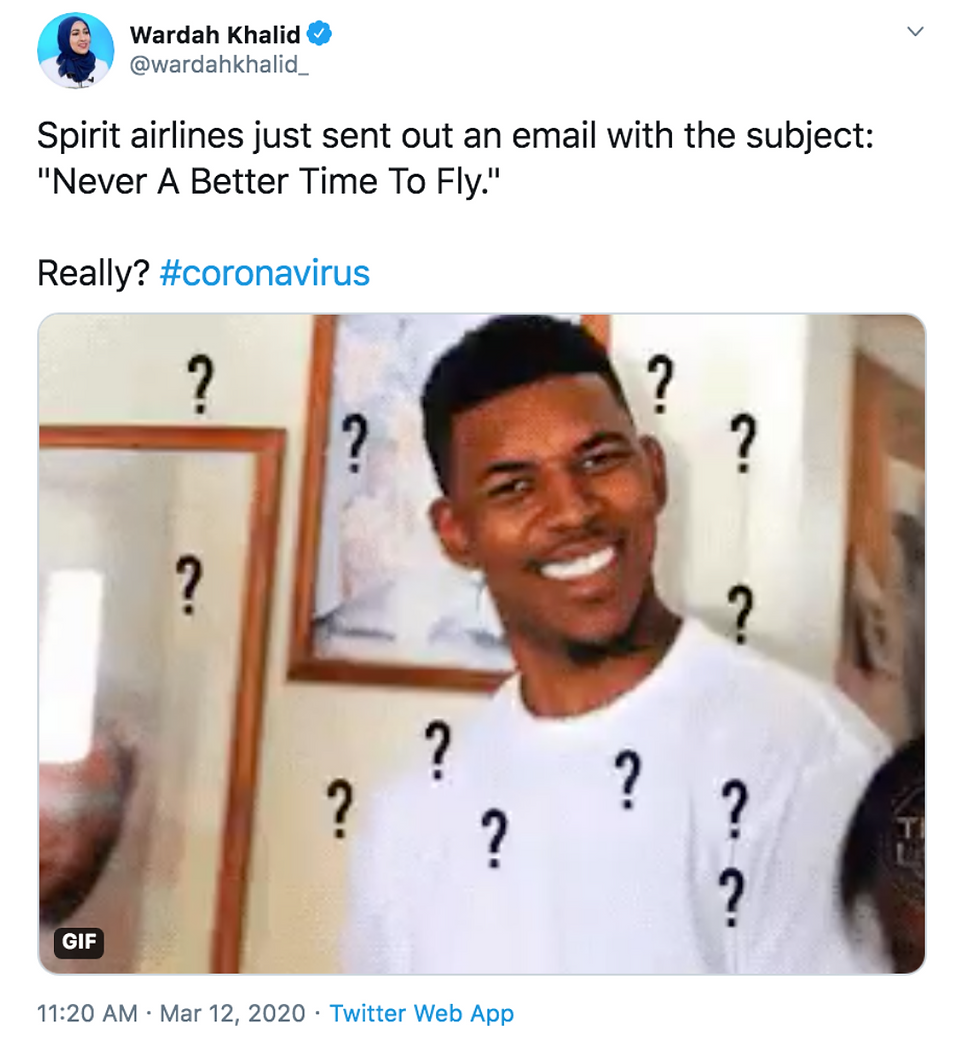Different Ways Brands are Handling COVID-19
- guerrillas

- Apr 14, 2020
- 3 min read
From university seniors who won’t be walking across the stage in May to nurses who fear that their patients will be the ones that infect them, our communities have been drastically impacted by COVID-19. We are expected to abruptly adjust to a “new normal” that isn’t normal to any of us at all. For marketers, this means dashing back to the drawing board to revise or reject marketing plans made for a different time. With slashed budgets and the absence of any playbook on dealing with such an unprecedented, prolonged challenge, marketers are walking on a tightrope. How can marketing efforts demonstrate community or consumer engagement? How do we avoid the exploitation of the situation? Here’s how some brands have been answering these questions and marketing themselves amid the crisis:
1. Domino’s

The pizza franchise announced that its stores will be donating 10 million pizzas to hospitals, medical centers, and families with schoolchildren. All 6,126 of their stores will be participating in the “feed the need” giveaways. Some of these stores have decided to take their charity efforts a step further. Two franchisees in California and Indiana have agreed to donate an additional 1,000 pizzas to support their local communities. The “feed the need” campaign joins Domino’s contactless delivery option and announcement to hire 10,000 new employees as another way to actively (and tastefully) retain their brand perception in response to COVID-19.
2. Spirit Airlines

The implementation of travel bans has caused the airline industry to tumble financially. Spirit Airlines’s marketing department also took a hit from accidentally disseminating an ad that was written prior to the coronavirus outbreak. Spirit sent out a promotional email with the subject line “Never a Better Time to Fly.” a day after President Trump announced restrictions on European travel. In addition, the email featured a woman doing yoga and the phrase “The perfect time to treat yourself? Right this minute.” Spirit was quick to issue an apology in a now-deleted tweet. However, 25% of the email’s recipients had already opened the email. Everyone’s “most-hated airline” managed to get even more hate, as people took to Twitter to express their disapproval of Spirit’s ad.
3. QuickBooks
Accounting software QuickBooks was quick to switch their running ‘80s film nostalgia-inspired TV ads out for a new ad about GoFundMe’s Small Business Relief Fund. The fund is part of the Small Business Relief Initiative spearheaded by QuickBooks, GoFundMe, and Yelp to support small businesses challenged by COVID-19.
In the 30-second ad, QuickBook “salutes the grit and determination” of small business owners, calling them “the backbone of our economy”. They also mention how small businesses are now “adapting to support their communities”, urging viewers to play their part and donate to help these businesses—much more appropriate at this time than QuickBook’s original ads paying homage to The Karate Kid and Ghostbusters.
As marketers are writing a playbook on handling the coronavirus outbreak, one word that must be highlighted is empathy. During a time of great uncertainties, stakeholders are anxiously waiting to hear how they are being affected. Thus, marketers must find ways to directly and rapidly address their audience. The messages created need to clearly demonstrate the audience’s best interests in mind. Although this may mean overhauling entire campaigns and creating new ones in a limited time frame, it will prove to be crucial for a brand’s longevity.

Comments